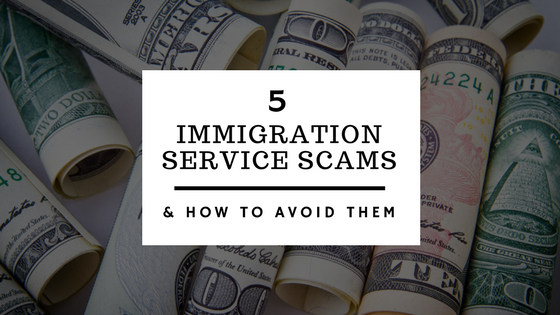It is no secret that Houston, Texas, is a booming market for immigration law. However, when a boom to business intersects with the needs of a vulnerable population, this sets the stage for scam artists to prey on the weak and needy.
Immigrants and particularly undocumented immigrants historically have fallen victim to scams on the northern side of the border. This is in part because undocumented workers often speak little to no English, have little knowledge beyond word-of-mouth about the U.S. legal system, and are desperate for help.
These are some of the most common immigration law scams that plague immigrants living in the Houston area:
1. Fake Immigration Attorneys:
It is incredibly common for someone who knows an immigrant, normally a friend of a friend, who claims to know an attorney. As the scam is commonly run, someone claiming to be an attorney (or someone who claims to work for one) will offer legal services but demand payment upfront.
Many attorneys ask for a retainer fee upfront, but before you pay any money to anyone, you should first check to make sure that they are who they say they are. Some scam “lawyers” may have seemingly valid credentials such as business cards, but you can always check with the Texas State Bar if you are not convinced.
2. Hiring Bad Attorneys:
In the United States, attorneys with a history of ethical or legal violations may still be licensed to practice law. Also, many attorneys take a high volume of small cases for financial reasons, but tend to neglect individual clients. Take caution when choosing your immigration attorney to avoid the bad apples. Before choosing an attorney, you should consult with multiple attorneys and research them online.
3. Notaries Public (Notarios Publicos):
In many Latin-American and South-American countries, notaries have similar legal standing to attorneys. This is not the case in the United States. Only attorneys have formal legal training, and many U.S. notaries know very little about the law (particularly complex and specialized areas such as immigration law) beyond what is needed to attain a notary certification.
4. Information Scams:
Many scammers either claiming to be attorneys or who claim to be able to contact attorneys for you are not looking for money, but rather information. Birth certificates, passports, payment information (credit cards and bank records), and tax records all have at least some black-market value. Often, scammers will present immigrants with a form that looks like a government form, but in reality, is fake.
Before handing over any of your sensitive information make sure you know who will be receiving that information and ask why the information is necessary.
5. Contracts in Both Spanish and English
Some clever scam artists know that many immigrants do not speak English well, and most who do speak English cannot read beyond a grade-school level. Thus, our fifth and final scam involves scammers who will present terms to their clients in Spanish that say one thing, followed by documents in English that say something slightly different. Normally, that slight difference is a trap.
These fake document switches can be confusing and hard to identify. That is why whenever you are presented with a contract, ask to read it over, carefully, and find a friend to interpret if you need to.

Leave a Reply